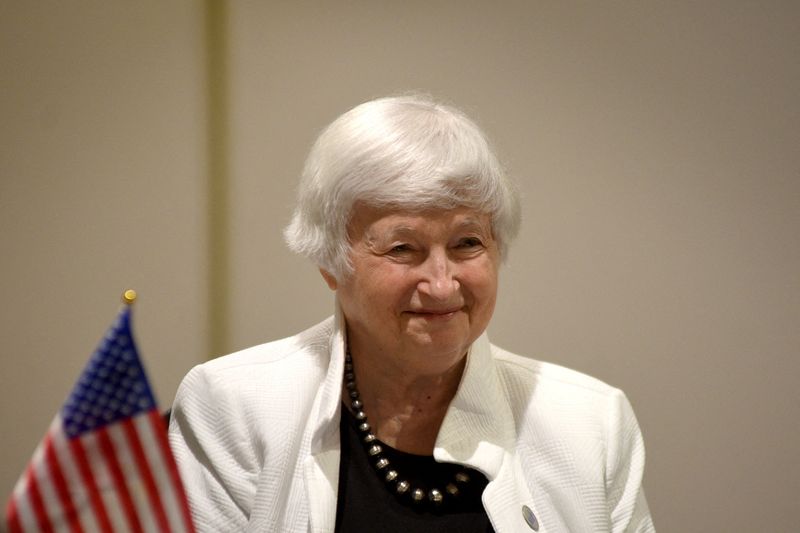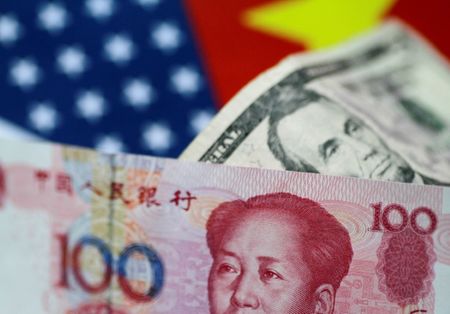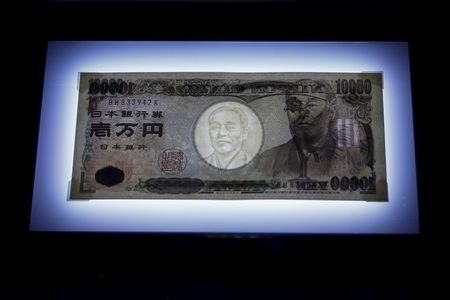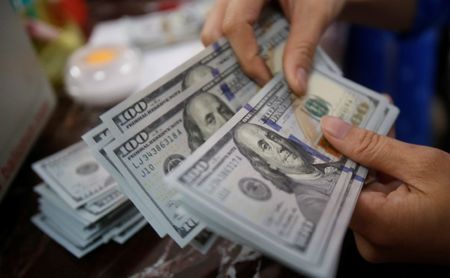The dollar was down on Wednesday morning in Asia, but remained near a two-decade high, ahead of U.S. inflation that could indicate how aggressively the Federal Reserve will tighten monetary policy.
The U.S. Dollar Index that tracks the greenback against a basket of other currencies inched down 0.06% to 103.69 by 11:23 PM ET (3:23 AM GMT). The index was not far from the high of 104.49 hit at the beginning of the week for the first time since December 2002.
The USD/JPY pair inched down 0.06% to 130.36.
The AUD/USD pair was up 0.27% to 0.6934, with Australia’s Westpac Consumer Sentiment index for May 2022 contracting 5.6%.
The NZD/USD pair was up 0.25% to 0.6302.
The USD/CNY pair edged down 0.12% to 6.7266. Chinese data released earlier in the day showed that the consumer price index (CPI) for April 2022 grew 0.4% month-on-month and 2.1% year-on-year, while the producer price index also rose 8% year-on-year.
The GBP/USD pair edged up 0.15% to 1.2340.
The euro remained at 1.05305, continuing to trade mostly sideways since hitting a more than five-year low at 1.04695 at the end of the previous month.
The yen continued to get some respite as benchmark U.S. Treasury yields pressed pause on their recent rally. The Japanese currency was little changed after dropping to a more than two-decade low of 131.35 on Monday.
Investors now await the April U.S. CPI figure later in the day for any signs that inflation is beginning to cool, with forecasts prepared by Investing.com predicting an 8.1% annual increase. The PPI will follow a day later.
After the Fed raised its benchmark overnight interest rate by 50 basis points during the previous week, the largest hike in 22 years, investors have been attempting to predict how aggressive the central bank will be. Markets are priced for another hike of at least 50 basis points at the Fed’s June 2022 meeting, according to CME’s FedWatch Tool.
The greenback has climbed nearly 9% in 2022 amid an increasingly hawkish Fed trying to combat ever-rising inflation.
Commonwealth Bank of Australia sees the risk tilted to further gains from here.
“The dollar’s reaction to the CPI will be asymmetrical in our view,” CBA currency strategist Joseph Capurso said in a note.
“A positive surprise will encourage markets to increase pricing for a 75 (basis point) increase in the Funds rate later in the year and support the dollar, while a negative surprise will keep pricing for 50bp increases in June and July intact and leave the dollar steady.”
The euro “remains heavy” above $1.05, and a strong CPI print could push the Australian dollar below $0.69, the note added.
In cryptocurrencies, bitcoin nursed its wounds after dropping towards $30,000 this week for the first time since 2021 and was trading at $30,758.92.




